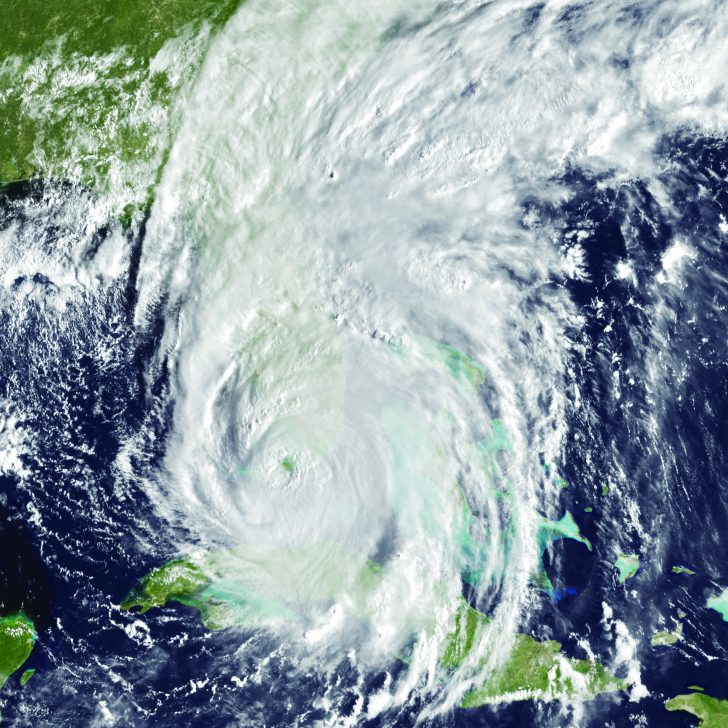by Capt. Jim Kalvin
The Natives can still recognize the signs – blue tarps here and there, random brand-new power poles, tree rows with “members” missing, screen cages without screens, fence rows with newer mis-matched material here and there, and there is still plywood on some of the homes that were devastated by Hurricane Irma. Yep, it’s that time of year again – hurricane season is upon us. Regardless of the “status” of the neighborhood, some homeowners are still waiting on the needed services that were over-whelmed when Irma came through last summer. And some home-owners got tired of waiting for lengthy and confusing insurance procedures and red-tape, and have moved-on. Roofers, marine contractors, re-screen professionals, glazers, landscapers, painters, etc, and etc., and etc. are still struggling to deal with the work-load.
Broken boatlifts still sway in the breeze. Docks still hang from twisted bolts or sagging seawalls on canals. Even new seawalls failed when the water was sucked out of the bays and waterways. Marco seems to have gotten it worse than Naples, but we’re a recovering waterfront community on the cusp of the next “season”. Hard to believe, but we already had a “system of interest” last month. The last week of April, there was a system in the Bahamas that qualified as a “tropical low” and was showing signs of circulation – and it was trending our way. Luckily, it wound up breaking apart and just giving us some fresh easterly winds and “dustings” of tropical rain.

But….here we are. Hopefully, we all learned a lot from Irma. Do you have a clear understanding of what the requirements of your boat insurance policy are? Do you have a “Hurricane Plan”? Do you have someone here to watch or prepare your vessel in your absence? From my perspective, and as one who has always tried to be prepared for almost anything, I learned a great deal. The most important item was – we need to lay up more potable water. Even with a whole property generator and a well pump, we discovered that the groundwater was the first thing to fail as “nutrient” and septic over-flow immediately compromised our supply. Yes, we have a purification system, but the contaminants over-whelmed the filters. Secondly, we all found out just how hard it can be to get propane for the generator or gas for vehicles – especially without phones or internet. We discovered that a measured trip to another County that was not hit as hard as Collier had been hit, would give us the fuel we needed without the wait or the lines.
As far as your boats go, your insurance company will make you prove that you took all reasonable precautions to avoid damage. This can include additional lines & fenders, additional pumps, removing electrical instruments, and securing your canvas. Make sure that your batteries can handle a pro-longed power outage, and keep your fuel tanks full after each trip. After the storm, available local fuel will go to First Responders and Law Enforcement. And if you have a boat with a generator, you may be blessed and highly favored – as you have the choice to move aboard the vessel and run off of measured generator power in the event of prolonged residential outages. In hind-sight however, the biggest problem lingering from two summers ago is the mis-understandings between boat and home-owners and their insurance providers. Ask the hard questions of your insurance professionals now and make sure you are in compliance with all provisions. As well, check with the facility where you moor your vessel. Different facilities have different requirements and you can be left on the short end of the liability stick if you don’t know the details of the fine print.
Better to be over-prepared and not need it than, well, you know. Wishing all a safe and trouble-free Summer – I guess the ambiguity of “Hurricane Season” is one of the prices we pay to live in Paradise!
